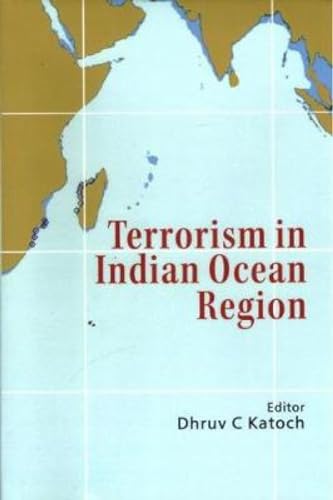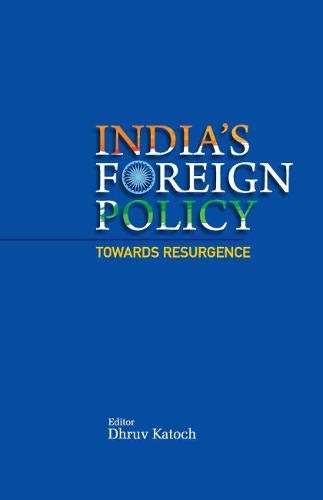Edited Dhruv Katoch (3 results)
Product Type
- All Product Types
- Books (3)
- Magazines & Periodicals
- Comics
- Sheet Music
- Art, Prints & Posters
- Photographs
- Maps
-
Manuscripts &
Paper Collectibles
Condition
- All Conditions
- New
- Used
Binding
Collectible Attributes
- First Edition
- Signed
- Dust Jacket
- Seller-Supplied Images
- Not Printed On Demand
Seller Location
Seller Rating
-
Honour Redeemed and Other Stories from the 1965 Indo-Pak War
Published by Bloomsbury, 2016
ISBN 10: 9385436864ISBN 13: 9789385436864
Seller: Vedams eBooks (P) Ltd, New Delhi, India
Book First Edition
Soft cover. Condition: New. 1st Edition. Honour Redeemed recalls the 1965 Indo-Pak war and the military engagements that preceded it with disarming honesty and candour. From the salt pans of the Rann of Kutch to the lofty peaks in Jammu and Kashmir, from the deserts of Rajasthan to the lush green fields of Punjab, stories emerge of battles fought with great courage and valour, told by the very men who fought that war half a century ago. the defence of Sardar Post in Kutch, the capture of the Hajipir Pass, the operations in Chhamb, the battle of Asal Uttar, the tank battles astride Phillora and a host of other battle accounts have all been skilfully woven into a compelling narrative which brings the war alive there were no victors or vanquished in this war. But Pakistan's design to take the state of Jammu and Kashmir by force were foiled and its offensive forces were crippled in the famous tank battle that took place in Khem Karan Sector and Phillora. By the time the ceasefire tool effect on 23 Sep 1965, India has effectively countered Pakistani aggression and in full measure, the nation's honour had been redeemed.
-
Terrorism in Indian Ocean Region
Published by Pentagon Press, 2018
ISBN 10: 9386618389ISBN 13: 9789386618382
Seller: Vedams eBooks (P) Ltd, New Delhi, India
Book First Edition
Hardcover. Condition: New. 1st Edition. The Indian Ocean is the world`s third-largest body of water through which cross the vital sea lanes that help feed some of Asia`s largest economies. Nearly 80 percent of the world`s seaborne trade in oil passes through the choke-points in these sea lanes of which 40 percent passes through the Strait of Hormuz, 35 percent through the Strait of Malacca and 8 percent through the Bab el-Mandab Strait. This gives an extremely vital importance to the Indian Ocean. The Indian Ocean Rim has 26 littoral states and is home to 2.3 billion people. These states as well as their immediate hinterland vary in terms of geography, population, culture, political structures and economic development. But all of them are impacted by the phenomenon of terrorism and of growing incidents of piracy in and around the Horn of Africa. Today, it is in the Indian Ocean Region that a large majority of armed conflicts are currently taking place. This book is a compendium of the proceedings of the third Counter Terrorism Conference organised by India Foundation and the Government of Haryana (CTC 2017) with focus on terrorism in the Indian Ocean Region. As in the earlier two conferences organised by India Foundation, CTC 2017 brought together a galaxy of political and thought leaders from India and across the world to highlight various aspects of the subject. The book highlights how countries across the region are handling counter terrorism. The approaches may differ, but they aim to achieve the same result. Most importantly, what comes out clearly is the fact that terrorism can no longer be viewed as a problem of any one affected country; because of its global ramifications, it has to be fought as a joint regional and global effort. The radicalisation of sections of the population, the steps needed to counter its spread and also de-radicalise those affected populations have been emphasised in this volume. Fighting the scourge of terrorism would perforce have to be a united effort encompassing many fronts. States that use terrorism as an instrument of state policy would need to be addressed to eliminate it. (jacket).
-
India's Foreign Policy: Towards Resurgence
Published by Pentagon Press, 2019
ISBN 10: 9386618788ISBN 13: 9789386618788
Seller: Vedams eBooks (P) Ltd, New Delhi, India
Book First Edition
Hardcover. Condition: New. 1st Edition. The primary role of a nation s foreign policy is the maintenance and preservation of National Interest. How a nation conceives its national interest and seeks to protect and promote it through its foreign policy must hence be a matter of public importance and discourse. This book expounds upon the various facets of India s foreign policy, tracing its roots from the times of Chanakya, millennia ago, and then expanding upon the post independence phase of India s foreign policy. Chanakya is credited with crafting perhaps the very first treatise on statecraft, sometime in the fourth century BCE. India thus has a rich legacy in dealing with foreign powers towards the furtherance of national interest. Post independence, India s foreign policy was crafted by its first prime minister and since then has evolved over the last seven decades, maintaining at one level a distinct continuum even as it transferred from one Government to the other. A new zest has however been given to India s foreign policy over the last four years, and a transformation is visible in multiple ways, though the core remains the same. The transformation is visible in the uncompromising firmness shown on issues related to the nation`s integrity and honour and in that sense, it has become a bold, proactive, innovative and ambitious foreign policy with Samman, Samvad, Samriddhi, Suraksha, Sanskriti evam Sabyatha being the driving forces behind India s global engagement. There is today a greater expectation of India s role in the world, as reflected by India emerging as a natural participant in several regional and global discourses. Another important transformation has been the rekindling and strengthening of India s linkages with its diaspora, cooperation in the field of counter terrorism, emphasis on the neighbourhood with significant progress taking place in terms of physical and cultural connectivity and on a renewed economic vigour. This book brings out the dynamics in play in India s foreign policy and offers a holistic understanding of the factors which have shaped its growth. Covering a vast swathe, it delves on India s strategic culture and security concerns, economic growth, soft power, and relations with the neighbourhood and the world.




